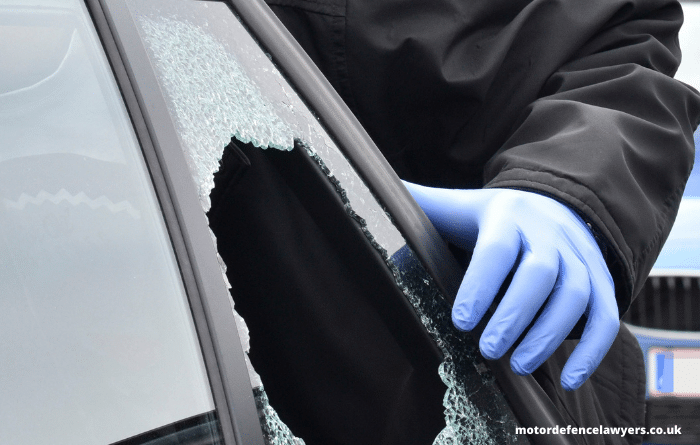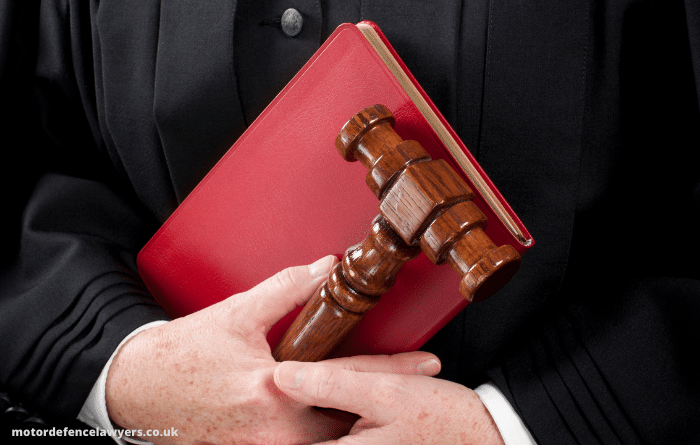Why Choose Us
- Ranked in the top 3 law firms by Trustpilot
- Nationwide Legal Coverage
- Free Consultation
- Fixed Fee Terms
- Competitive Rates
- Flexible Payment Plans
- Trusted Legal Care
- UK’s Leading Motoring Solicitors
5 out of 5
Our customers rate us
“EXCELLENT”
AS SEEN ON
26.10.2021
Released Under Investigation? How to Protect Your Rights
If you have been released under investigation and want to understand how to protect your rights, this article will help you. In the UK, you can be arrested for many different motoring offences. You might be driving without insurance or a licence, using a phone while driving, speeding excessively, or operating your vehicle while under the influence of drugs or alcohol. These offences will often lead to you being released under investigation (RUI) where you are free to go after being arrested but with your case still under consideration.
RUI was introduced following amendments made by the Policing and Crime Act 2017. The major change here is that you can be released ‘without bail’ whilst the case is investigated.
To explain exactly what RUI means and to help everyone who is currently in that situation, here is an in-depth guide to being released under investigation.
Contact Caddick Davies Solicitors today
Send us a message or call us on 0333 443 2366 for friendly advice

RUI stands for “released under investigation” and it essentially means you have been arrested for an offence, and released without charge, but the police are still investigating your case. The decision to RUI often stems from:
In terms of a motoring offence, RUI means that you have been arrested and then released while the investigation continues. You are free to go but still face the possibility of being charged with an offence later on. The police may decide to drop the case should they believe you are not guilty or should they lack the relevant evidence to convict you. This can be a particularly difficult time for those under investigation as there is uncertainty as to how the matter may proceed.
A major concern with being RUI is that there is no specific time limit for the police to decide how to proceed. This means that you could be in a state of limbo for years and not know if you are going to be charged tomorrow or the entire case dropped next week. This can cause an enormous emotional toll with no way to find out what is going on or to speed up the process.
Notwithstanding the above, there are certain offences for which a statutory time limit applies. This means that the police must lay the charge against you with the court within this timeframe. Section 127 of the Magistrates’ Courts Act 1980 implements a limitation period, for laying a summary-only charge, of 6 months from the date that the offence was committed.
A large number of motoring offences are summary only and would therefore benefit from this limitation period. Should you want to clarify whether the offence you are being investigated for is subject to any statutory time limit, it is best to contact a legal professional for advice.
Whilst being RUI can be nerve-wracking, it is often a sign that the police do not yet have the required evidence to charge you with an offence. Should their investigations fail to uncover additional evidence of value, they may decide to drop the investigation altogether.
Another benefit to being RUI is that you are not subject to any bail conditions or specific requirements. This is in contrast to the previous system of ‘pre-charge bail’ that imposed requirements on those under investigation.
Being RUI and without being formally charged can provide you with an opportunity to obtain legal advice as to the best options moving forward. It may be the case that steps can be taken to obtain evidence in support of your defence or even mitigation. In some instances, your legal representatives may be able to request that the police not proceed any further based on the evidence obtained. One such example of this in practice is:
Where you are under investigation for an offence of driving without insurance, but you can provide evidence which shows you were driving in the course of your employment, believed you were insured and were not the owner/hirer of the vehicle (as per the statutory defence found within Section 143(3) of the Road Traffic Act 1980).
In cases such as the above the matter may be resolved quietly, efficiently, without any form of formal proceeding and with little impact to you. Not all matters are simple and some may require a more reserved approach. Once again it is best to engage a legal professional who can advise on the necessary steps moving forward.
Contact Caddick Davies Solicitors today
Send us a message or call us on 0333 443 2366 for friendly advice
As above, it is not unusual for your release under investigation to be a result of a lack of evidence of ‘hole’ in the police case. In order to obtain further clarity surrounding the circumstances of an offence or potentially an admission from you the police may request that you attend a voluntary interview.
Voluntary interviews are often conducted during the ongoing investigation. These interviews can be both positive and negative in your case and it is therefore important that they are approached with caution.
It is firstly important to explain that you are entitled to legal representation during an interview and it is advisable that you seek this before answering any questions. Should you attend alone you risk further incriminating yourself and may fail to adequately present any defence argument. Police interviews are usually conducted in one of three ways:
The best approach to take in each case varies and will be impacted by the circumstances of the allegation and the nature of any evidence in existence. You should seek legal advice before deciding on how to proceed at interview.
It is important to note that whilst you cannot be forced to attend a voluntary interview, it is advisable that you do so. Should you fail to attend the police may simply look to require your attendance or re-arrest you to carry out the interview.

The list is almost endless but some of the most common offences which can lead to RUI include speeding, dangerous driving, careless driving, driving under the influence of drugs or alcohol, and failing to stop after an accident. It is very common for people who have been involved in an incident on the roads to be RUI because it can take a long time for the authorities to determine exactly what happened.
In fact, the police often choose not to press charges until they have interviewed all of the witnesses or assessed additional evidence. In more complex cases, the police have the ability to refer the matter to the CPS for review.
If you have been arrested or charged with any motoring offence then it is important that you seek immediate legal help. A solicitor will listen carefully to what happened during your arrest or questioning process so they can decide how best to represent you moving forward. When you are first arrested, make sure you have a lawyer present during all questioning to ensure that you are not pressured into saying anything that may negatively impact your case moving forward.
The period of investigation prior to any charge is extremely important and the police must continue to comply with any rules, regulations and duties. A clear recollection of events up to the discussion with a legal representative is critical when checking whether the police have continued to comply with their obligations.
If you suspect that your case has been mishandled in any way then you need to take action. A common instance is where clients are questioned without having been given the relevant caution. A failure to provide the caution before questioning can lead to any answers being ruled as inadmissible evidence. This means the prosecution cannot use this in the case. Getting legal representation involved at an early stage can help to ensure these issues are not overlooked.
Contact Caddick Davies Solicitors today
Send us a message or call us on 0333 443 2366 for friendly advice
Should you instruct legal representation we may be able to look over all of the paperwork involved in your case and make sure that nothing is missing or misinterpreted which could lead to mistakes being made by police officers during their investigation.
Having an experienced lawyer can also put additional pressure on the police to either charge you or close the case. This is even more relevant when there are defence issues to raise with the police at this early stage.
First and foremost, you should always choose lawyers who specialise in the area of law you are dealing with and with experience in your type of case. At Caddick Davies, we have expertise and years of experience defending clients who are being accused of every type of motoring offence. We have represented many clients who have been RUI since the legislation was introduced in 2017 and know exactly how to keep our clients informed and protected during the process.
When choosing a lawyer to represent you in any legal situation, it is crucial that you check their experience. We will be able to explain to you how we have successfully defended other similar cases so that you can make the most informed decision on whether to bring us on board.

Once you have decided to work with us, our team will put together a complete picture of your case so that we can start building the strongest possible defence against any allegations. We know how important it is for clients to feel in control at all times which is why we provide regular updates on where things are going and what actions need to be taken next.
Some cases do not require much investigation but if there are further facts or evidence relating to your RUI, then we are able to advise on how best to evidence this. It often takes months before police officers release their full findings after investigating motoring offences so we will exert all possible pressure to ensure speedy release.
We will check that all police procedures were followed during every stage of your arrest and release. In the instance that charges are brought, we will ensure all evidence and any relevant witness statements are prepared to give you the best possible chance of a positive outcome in court.
The police have a responsibility to keep the public safe from those committing motoring offences, however, this does not stop them from making mistakes. Unfortunately, there are many people who have been released under investigation for months at a time while being completely innocent and it is cases like these that show how important experienced legal representation is.
Some cases may not require immediate action and can be considered in more detail should a charge actually be brought against you. Nevertheless, it is best that you discuss the specifics of your situation with a legal professional who can advise on whether you may benefit from this early support.
Contact Caddick Davies Solicitors today
Send us a message or call us on 0333 443 2366 for friendly advice
Why Choose Us
We have been successfully representing clients in motoring courts nationwide
Contact us for a free consultation, our expert solicitors will be able to discuss your case and advise on legal options.
Birmingham
Bradford
Bristol
Carlisle
Cardiff
Chelmsford
Huddersfield
Hull
Manchester
Liverpool
Leeds
London
Newcastle
Norwich
Nottingham
Sheffield